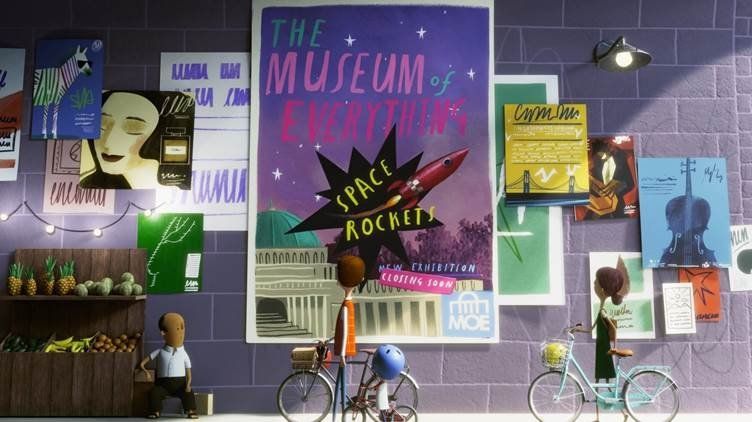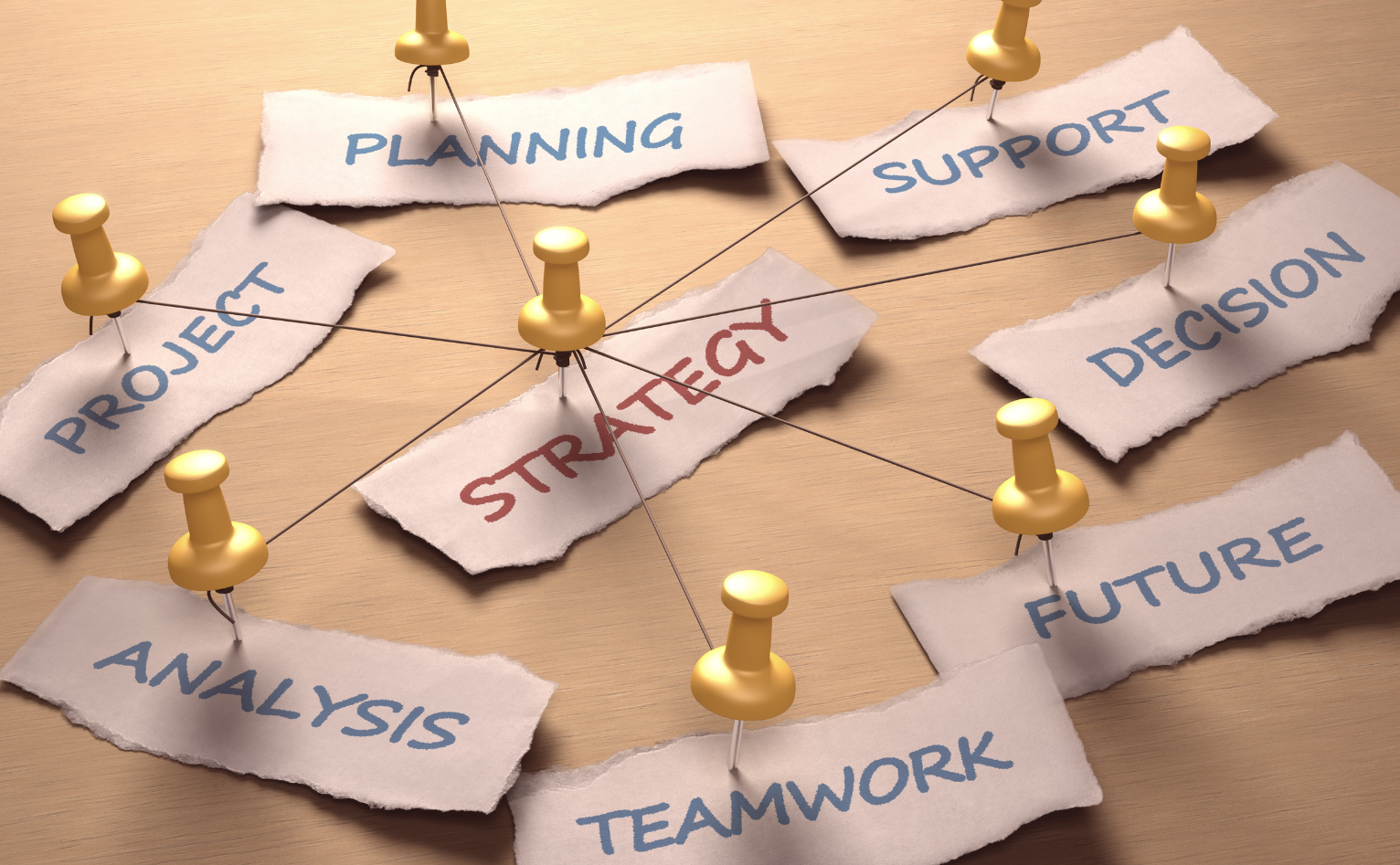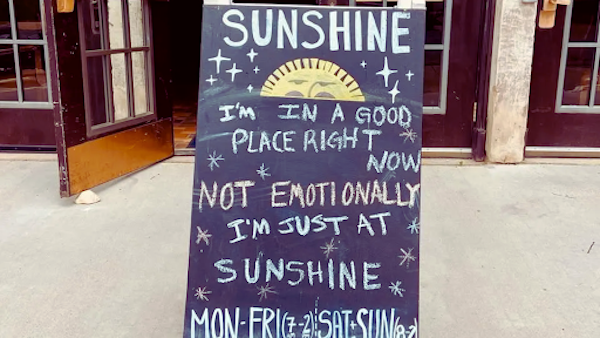I’m Only Six—You Figure it Out!
I rarely disagree with Greta Thunberg, but—while she won’t know it—we temporarily parted ways over the COP26 climate summit in Glasgow. Before the event even opened its doors, she had insisted that: "We are tired of [leaders'] blah, blah, blah." And of course I agreed. Later she said that the event was a "PR exercise"—and, again, I agreed. Of course it was. Pretty much everyone we met there was doing PR of some sort.
But then she insisted, before the summit had closed its doors, that COP26 was a "failure.”
Hold on a minute, I thought as I trudged along as part of the rainswept Fridays4Future march she would shortly address. My instant reaction was to conclude: “No! No. 1, it’s too soon to know. And No. 2, COP26 may just have succeeded in opening a window on a very different political landscape.” An unintentional, but critical outcome.
A Place for Youth
COP26, I believe, marked the crossing of a critical psychological threshold, indeed a political threshold, where older people who run—and have often screwed up—the planet are being forced to acknowledge that young people should have a voice. Will have a voice.
The question now is not so much whether, but where, when and how?
But first let’s step back in time to consider how young people fared in earlier stages of our industrial economies. Some days before our CEO and I joined the 100,000 people of all ages at the Climate March, I rode the train to Glasgow. As we sped north, I began reading Jeremy Paxman’s new book on the critical role coal played in Britain’s rise to global power. Fascinating.
Black Gold begins with an early example of the truly awful price that endless mining communities paid in life and limb. The book’s opening pages tell the frightful story of the Hartley mining disaster of 1862. This single catastrophe created 103 widows and left 257 children and 47 dependent adults with no means of support. The ages of the dead ranged from seventy-one down to ten—indeed, a single family lost seven children and teenagers.
Clearly, the Industrial Revolution was no paradise for young people, but perhaps they had it easy in contrast to the future prospects of many young people now alive as the consequences of all the coal, oil, and gas we have burned come home to roost.
It was striking, in fact, how many voices at COP26 were busily heralding the end of coal as a fuel. New agreements unveiled in Glasgow included a pledge signed by 25 countries, including the United States and Canada, to stop public financing of overseas fossil fuel projects by the end of 2022. The UK also unveiled its Global Coal to Clean Power Transition, featuring new commitments from 23 countries, including Poland, South Korea, and Indonesia, to phase out coal power.
One Minute to Midnight
"Today, I think we can say that the end of coal is in sight," said Alok Sharma, President of COP26, but where were the biggest coal-burners, China in particular? Conspicuous by their absence—and busily burning more coal than ever in the midst of the latest energy crisis.
"It's one minute to midnight on that doomsday clock, and we need to act now,“ intoned Britain’s Johnson, no great friend of climate action in the past. “If we don't get serious about climate change today, it will be too late for our children to do so tomorrow." Well-informed people in his audience knew that he was actively considering the first new coal mine in the country since decades.
Dubbed “a clown” by some politicians from other countries, he was soon enmired in yet another “sleaze” scandal, very much of his own making. And his declared, laudable intention of “uniting the world to tackle climate change” proved something of a damp squib—with the presidents of countries like China and Russia, no slouches when it comes to burning fossil fuels, refusing to even show up in Glasgow.
But one theme kept surfacing in my brain as I watched fireworks screech into Glasgow’s night skies for several nights running, first for Diwali, then for Guy Fawkes night. In headlines: the shape of a new and very different political settlement is now beginning to emerge. Yes, in places like New Delhi, with millions of people ignoring firework bans, air pollution monitors literally went off the scale as toxic clouds built up across the region. But, as they say, it often gets darker just before the dawn.
You Figure it Out!
It’s interesting how some major businesses are now picking up on the theme of child eco-anxiety and activism. An Amazon TV ad currently running has young people from around the world encouraging businesses to clean up their act. And one line that still rattles around my brain came from a small boy awed by the scale of what needs to be done to fix all of this: “I’m only six!” he protests. “You figure it out!”
One afternoon, I walked out to the Green Zone in Glasgow’s Science Centre. There I watched a new film, Here We Are, designed to get children thinking about our home planet. Based on a book by Oliver Jeffers, who took the audience through a range of iPad-based drawing exercises during the Apple-sponsored event, the film contained well-rehearsed lines like, “Take care of our planet—it’s the only one we’ve got!” But I was forcefully impressed by the quality of Apple TV+ production—and it seemed the audience was, too.

Bringing Youth on Board
One session I had to miss featured Barack Obama. His key message: "To all the young people out there—I want you to stay angry. I want you to stay frustrated." But he advised global youth, “Channel that anger. Harness that frustration. Keep pushing harder and harder for more and more. Because that's what's required to meet that challenge. Gird yourself for a marathon, not a sprint."
He honoured the dedication of activists such as Greta Thunberg who are "forming movements across borders," and urged young people to get out and vote for politicians who will stand against climate change. "Vote like your life depends on it, because it does," he concluded.
More practically, B Lab UK got together with The Body Shop International to present Boardroom 2030, a new project exploring how youth boards might help business leaders to tap into the very different views, priorities, and wisdom of young people.
The sort of questions being asked: Consider who should have a seat at the table. How can you include your employees and the voices of young people? Looking beyond the bottom line and the year ahead, what topics should be discussed? What should all businesses be discussing in boardrooms in 2030?
I was impressed how Body Shop CEO David Boynton patiently listened to advice that would scarcely have been new to him or his top team—but this was a pilot project, and I came away convinced that this trend can only build over time.
Extreme Youth Hangout
Finally, at least here, I spoke at an event in what was billed as the “Extreme Hangout,” hosted by lawyers Mishcon de Reya on an old ferry—whose decks occasionally rocked as river traffic passed on the Clyde. This was part of the youth fringe for COP26.
And the rocking of the decks was a timely reminder of the seismic shifts that will impact our politics and economies as young people move into the mainstream—creating very different currents, tributaries, and estuaries.
As Alex Rhodes, Head of Mishcon Purpose, explained, “Globally, young people are the most impacted by climate change, yet they are the least enfranchised. Working with One Young World and the Democracy and Culture Foundation, [Mishcon] have held The Global Youth Climate Inquiry, hearing evidence from global youth leaders on how climate change is impacting them and understanding how they can be better enfranchised in decision-making and action taking.”
Having taken part in the inquiry, I was delighted to be invited to take part in an “Extreme Youth Hangout” panel discussion focusing on the question of how we bring young people into the decision-making process that will profoundly impact their futures.
As it happens, another of the books I had been reading on the train a few days earlier was Generations by Bobby Duffy. Early on in the book he notes that, throughout history, “tumultuous times awaken generational awareness.”
What with the malign effects of the pandemic prefiguring the coming impact of the climate and biodiversity emergencies, young people are growing up in a world that could radicalize them to the point of chaos, or help build their characters and commitment to solving great challenges in the same way the Second World War did for many who took part.
A Future that Works for the Young—Of All Species
We face intergenerational challenges that require us to evolve intergenerational solutions, including radically different politics and economics. The battle now is to create a world that is fit for the young of all people—and all species.
In his summary of a Federated Hermes event where I also spoke, the investment firm’s international CEO, Saker Nusseibeh, encouraged his audience to come up with courageous ambitions to drive future progress.
After Glasgow my own commitment to helping younger people, as the closest proxies we have for the future generations that have long been central to the sustainability agenda, has only grown.
PHOTO: John Elkington | COP26 Climate March, 6 November 2021
About the Author:
John Elkington
Founder & Chief Pollinator, Volans Ventures
ISSP Sustainability Hall of Fame Honoree
Read perspectives from the ISSP blog



